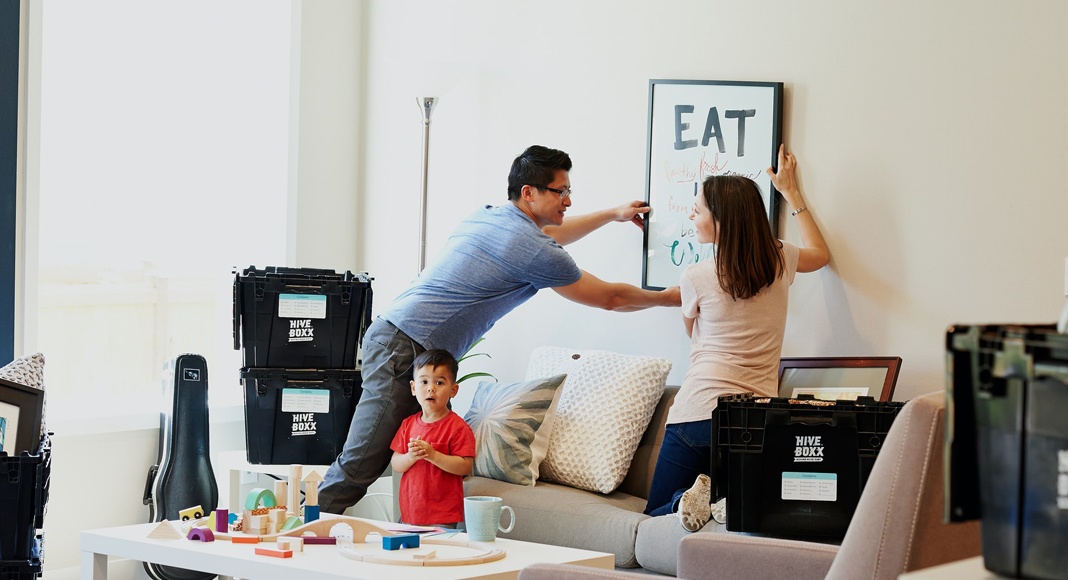My son was diagnosed with High Functioning Autism 3 1/2 years ago. He turns seven this month. That means we’ve lived with the diagnosis for half his life. Lately, I’ve been reflecting on how autism has impacted our family. Raising someone with an Autism Spectrum Disorder hasn’t been easy, but it’s actually been more positive than I expected.
I’m going to share five positive things that I’ve learned during our journey with autism. But before I do I want to remind you that autism is a spectrum disorder. That means that it presents itself differently and with various degrees of severity in each person. My experience is probably different than someone else’s experience, but we still can learn from and support each other. I hope these things help those of you who are also impacted by autism.
The diagnosis is a good thing because it connects you to the resources you need
At first, I was afraid that being diagnosed as autistic would be detrimental to my son. I was worried that having this label would place limits on him. Instead, I found that the official autism diagnosis opened doors to special services that help him grow and develop.
Special Needs Pre-K was the first service that my son was able to access due to his diagnosis. He started attending special needs Pre-K when he was 3 ½ years old. He learned so much. When he started school he was barely verbal with family and never talked around strangers. He hated being touched and was always super tense. His amazing and patient team worked to get him to interact with them and with other children. He started loosening up and began to do things like give hugs and hold pencils. As the school year progressed, he started talking a little bit more and even started getting comfortable using the bathroom.
The autism diagnosis also enabled me to enroll my son in an Advanced Behavioral Analysis (ABA) Therapy. My husband was in the Army at the time and our insurance covered the therapy. A therapist came out to our home once a week and worked with my son. She also taught me and my husband some ways to communicate better with our son. We still use her technique of holding up two fingers and saying, “first we’ll do _____, and then we’ll do ______.”
We discontinued ABA therapy when my husband left the military. After we settled down in Idaho I went through the process of enrolling my son in Children’s Developmental Disability Services through the Idaho Department of Health and Welfare. My son now participates in an ABA type therapy called Habilitative Intervention. His therapist takes him out into the community and helps him learn skills like how to interact with people or how to cross the street safely.
At school, my son has an Individual Education Plan (IEP) that specifies his education goals and the modifications he needs in order to achieve those goals. He’s able to be in a regular class with neurotypical kids, but he receives additional services from the Special Ed Teacher, a Speech Therapist, and an Occupational Therapist. He also has help throughout the day from Behavioral Techs who help keep him on task and out of trouble.
People are Incredibly Accepting
Every so often you’ll see stories about someone who doesn’t understand autism and made some hurtful remark to a child or parent. I know these things really do happen, but aside from a few questioning glances from strangers I haven’t felt judged by other people. Instead, I have been stunned by the love and acceptance that people show my son.
All the special programs that I mentioned above have come with special people. During his 4 years in school, my son has been blessed to interact with dedicated teachers, paraprofessionals, principals and therapists who all have his best interest in mind. I appreciate all their efforts to help my son learn and grow.
In therapy, my son has been able to work with caring and supportive therapists who model and teach good behavior. They also are good at passing on tricks and tips to me in ways that don’t seem condescending.
Many other people have also stepped up to help with my son. The daycare staff has been especially patient and accommodating. (Even on the day when he pulled the fire alarm.) We’ve also had a small army of people help with him during the children’s classes at church.
I’m constantly surprised by the goodness of young children. It warms my heart every time a child comes up to my son to say hello. When I visit his elementary school class I often see children include him. Over the summer there were several older children at daycare who were mindful of my son on field trips. They made sure he was following along with the group and having a good day.
Siblings are Wonderful
My son is very lucky to have three sisters ridiculously close to his age. Our twins are 17 months older than he is and his little sister is 17 months younger than him.
I used to worry that having siblings so close in age made it hard for me to concentrate on helping him. In fact, for a long time, I wondered if his speech delay was caused by the birth of his little sister. I wondered if I would have caught the speech delay sooner, or even somehow prevented it if I hadn’t been so distracted by the pregnancy and then a newborn.
I don’t blame myself anymore. I realize that there is more that causes autism than a distracted mother. I’ve also come to see that my youngest is a much bigger help than a hindrance. I often refer to my son and my youngest as my “other set of twins.” They are usually on the same developmental level. They learned to talk together, they potty trained together, and best of all they love to play together.
The twins have also been really good role models for my son. They all started school at the same time so they’ve always felt very protective of him on the bus. They are also good at helping the elementary and daycare teachers know what my son is talking about.
We all can do hard/uncomfortable/scary things
Like a lot of autistic children, my son has sensory problems. He’s especially affected by loud, noisy rooms. He HATES anything played over a loudspeaker whether it’s music or someone talking. Rather than avoid these things my husband and I want our son to get used to them. So even though my son has struggled with the noise we go to parades, firework shows, car races, the circus, and even an ISU basketball game.
A lot of the time my son has to have a blanket covering his head to block out the noise. Other times he’ll wear headphones (though he usually hates those too.) And you know what? Gradually he’s gotten more used to these things. He still struggles with crowded places or loudspeakers, but he doesn’t try to run away anymore. In fact, some places that I thought would be impossible to visit like movie theaters, arcades, and bowling alleys have become some of his favorite places.
This has taught me a lot about pushing past my own comfort zones. When we lived in Alabama I had a neighbor invite me to a Yoga class with her. I wanted to say no. I didn’t really know how to do Yoga and I wasn’t looking forward to learning it in a class with strangers. Plus the class was in a part of town I’d never been to, and I was nervous about finding the building and the classroom inside the building.
Before I could say no, I thought about the things my son was doing. I put him into uncomfortable situations in order for him to develop. I needed to apply that same principle to my life. I needed to experience things that made me uncomfortable so that I could grow. I went to the Yoga class, and I ended up loving it.
Even small victories are worth celebrating
I don’t want to leave you with the impression that my life is all rainbow and butterflies. There are plenty of things about autism that can be negative and disheartening. Sometimes it’s really, really hard. Last year, my son started having behavior problems at school, and I struggled with feeling like I was a bad parent. Lately, my son talks non stop about getting a puppy, and there is no way to get him to understand that we just aren’t getting a puppy right now. And don’t even get me started on the month my son was inexplicably terrified of the clock on the microwave and the lights on our Brita water pitcher.
But what gets me through those tough days (and months) is taking time to appreciate the little bits of progress my son makes.
But what gets me through those tough days (and months) is taking time to appreciate the little bits of progress my son makes.
Things like the first time he made the W sound; when he counted to 10 using his train cars; when he had a conversation with his grandma without needing me to translate; when I visited him at school and I was able to leave without triggering a meltdown; or when he sang me Twinkle Twinkle Little Star completely unprompted. All these things are small but so meaningful.
Do I wonder what the future looks like for my son? Yes, and it’s hard not knowing what to expect. But I’m encouraged by the progress he has made.
Autism is challenging and overwhelming. But I hope I’ve shown you there are also some very positive things. Here’s one final example:
When my son was younger he often spoke in gibberish phrases. One of the phrases was something like “Bessa Bessa Bessa.” As his vocabulary and diction improved his phrases became clearer. “Bessa bessa bessa” turned into “Best Best Best.” Later, as he started speaking in sentences he started saying “This is the very best!”
All along my son had been telling me that he enjoyed many parts of his life.
That was the most positive surprise of all.















